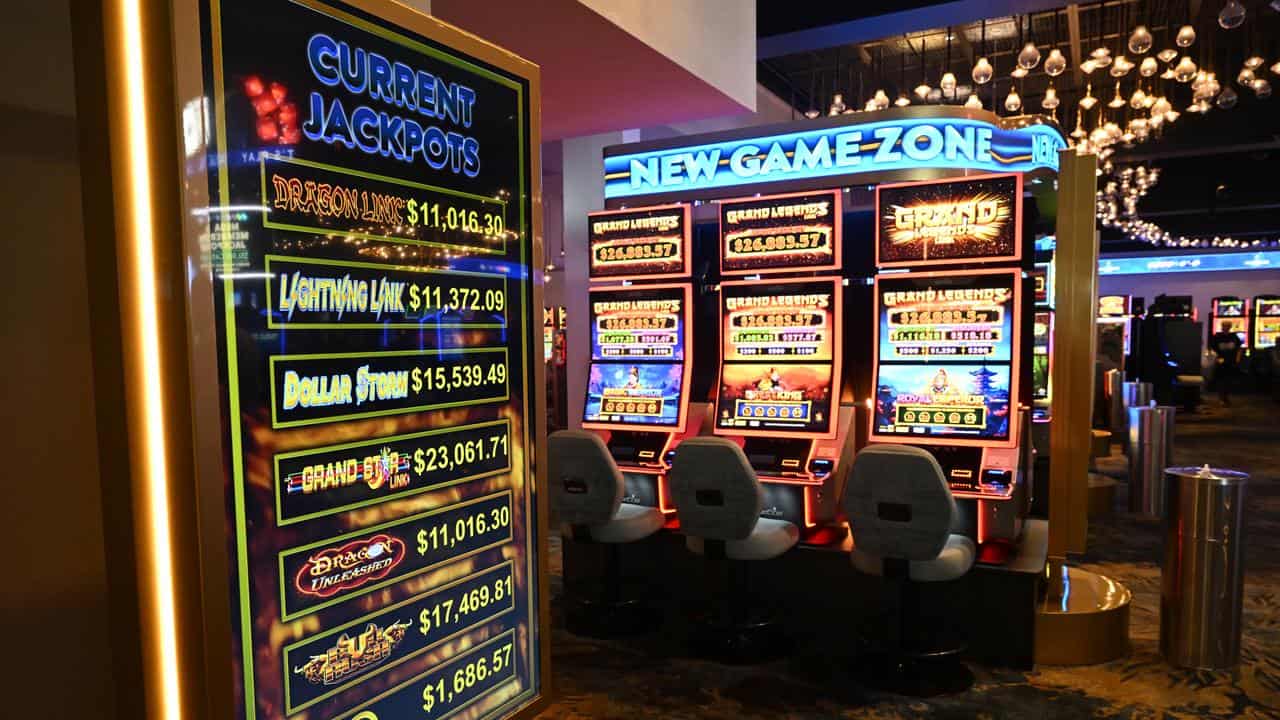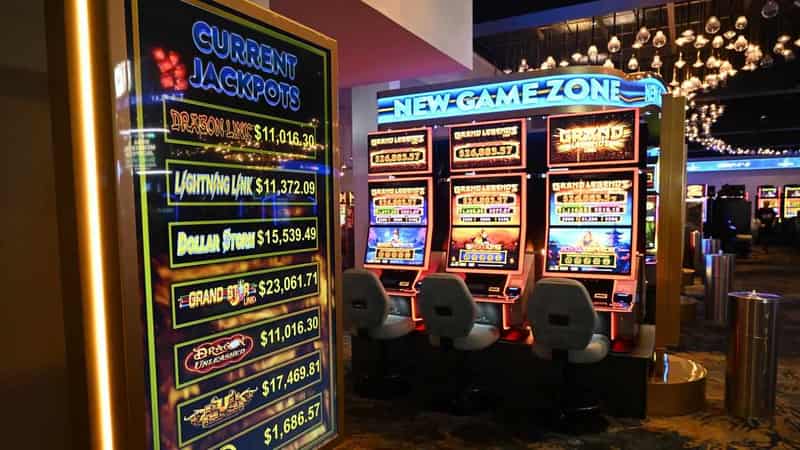
More than $8 billion is funnelled into NSW's 85,000 poker machines each year, casting doubt on the insight to be gained from a cashless gaming trial involving 32 participants.
The tiny number of players involved in the state's signature gaming pilot was revealed on Friday, along with news one in every two venues have tapped out since March.
The research trial which started in March is Labor's alternative to the previous coalition's headlining promise to force cashless pokies by 2028.
The policies were a response to a landmark NSW Crime Commission report revealing billions of dollars of dirty cash was being washed through the pokies.

A little more than 200 people had signed up in the trial with 32 "actively using", a Liquor and Gaming official told MPs on Friday.
The official was uncertain how many active users were providing feedback to researchers but pointed out gamblers who declined to get involved and venue staff were also providing feedback.
The paltry figure drew immediate ridicule from the opposition.
"Only 32 people in all of NSW have signed up to this, which begs the question why people would participate, when it’s nothing more than a research project?" gaming spokesman Kevin Anderson said.
"The feedback I’ve received is that the trial is too restrictive, and the technology is too clunky, which means the data will be unusable."
Opposition leader Mark Speakman said the government had completely bungled its trial.
"This isn’t just incompetence, it’s a slap in the face to every family suffering from gambling harm," he said.
In a further woe, it was revealed only 10 clubs and four hotels remained in the trial, down from the 27 approved to take part.
Among the casualties was Wests HQ which operates 720 machines in its sprawling complex in outer western Sydney.
About 2000 machines are still involved in the trial, four times what Labor had promised before the 2023 election.
Gaming Minister David Harris said once willing venue operators worked out the cost and technology involved, and factored in the age of their machines, many found it unfeasible to be involved in the trial.
Venues and users are not compensated for participating.
Mr Harris insisted however the researchers were getting a "really good picture" of a complex, novel change.
"It's a trial, it's dynamic and currently being observed by the researchers," he said.
"The people who haven't signed up to the trial also gives them (the researchers) information.
"We're getting a really good picture of what works and the pitfalls."
The $3.4 million trial runs alongside reforms that cut cash input limits for all new gaming machines, shaves down the state's available poker machines and bans political donations from clubs involved in gaming.
Cashless gaming was a recommendation of the NSW Crime Commission to prevent money laundering and was also backed by gambling reform advocates as a harm minimisation measure.
Poker machine losses increased by about 50 per cent in the five years to 2022.
Results of the cashless gaming trial will be reported to government in November.









